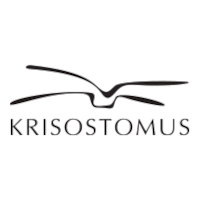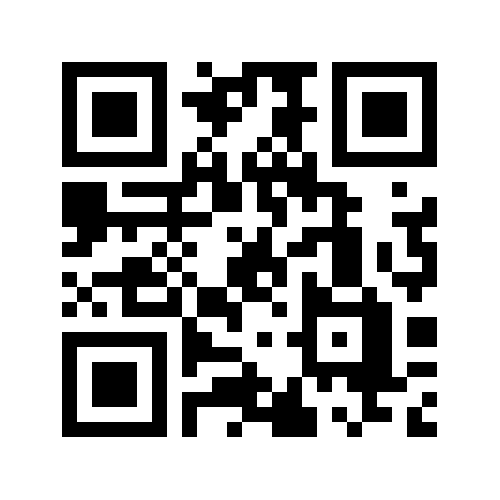-
Dārza preces
-
Datortehnika
- Iekšējie cietie diski (HDD, SSD, Hybrid)
- Operatīvā atmiņa (RAM)
- Datoru korpusi
- Videokartes (GPU)
- Mātesplates
- Barošanas bloki (PSU)
- Datora ventilatori
- Procesora dzesētāji
- Komponentu piederumi
- Procesori (CPU)
- Termopastas
- Kontrolieri
- Diskdziņi
- Piederumi korpusiem
- Skaņas kartes
- Ūdens dzesēšana - komplekti
- Ūdens dzesēšana - aksesuāri
- TV uztvērēji, FM, video kartes
- Grafisko karšu dzesētāji
-
Mobilie telefoni, planšetdatori, Foto
- Telefonu vāciņi, maciņi
- Ekrāna aizsargstikli
- Mobilie telefoni
- Lādētāji un adapteri
- Lādētāji-akumulatori (Power bank)
- Savienotājkabeļi
- Auto turētāji
- Atmiņas kartes mobilajiem telefoniem
- Mobilo telefonu aksesuāri
- Akumulatori mobilajiem telefoniem
- Selfie Sticks
- Bezvadu garnitūra
- Telefonu rezerves daļas un instrumenti to remontam
- Austiņas
-
Mēbeles un interjers
- Dārza krēsli
- Dārza mēbeļu komplekti
- Dārza nojumes un lapenes
- Krēslu paliktņi
- Dārza galdi
- Saulessargi, markīzes un statīvi
- Šūpuļtīkli
- Dārza soli
- Sauļošanās krēsli
- Dārza šūpoles
- Dārza mēbeles bērniem
- Smilšu kastes, smiltis
- Āra paklāji
- Virtuves un ēdamistabas krēsli
- Virtuves galdi, ēdamgaldi
- Virtuves skapīši
- Virtuves furnitūra
- Virtuves komplekti
- Ēdamistabas komplekti
- Galda virsmas
- Mēbeļu kolekcijas virtuvei
-
Rotaļlietas, bērnu preces
- Higiēna un veselība
- Bērnu barošanai
- Bērnu rati un aksesuāri
- Preces māmiņām
- Autosēdekļi un aksesuāri
- Manēžas
- Bērnu šūpuļkrēsliņi
- Bērnu pārtika
- Zīdaiņu matrači
- Staigulīši
- Slingi, ķengursomas
- Mazuļa nospiedumi
- Bērnu gultas veļa
- Autiņbiksītes
- Jaundzimušajiem
- Bērnu drošības preces
- Zīdaiņu gultiņas
- Zīdaiņu apģērbs
-
Smaržas, kosmētika
-
TV un Sadzīves tehnika
- Elektriskās tējkannas
- Kafijas automāti
- Ūdens filtri
- Taukvāres katli, aerogrili
- Blenderi, smalcinātāji
- Virtuves svari
- Īpašas ierīces ēdiena pagatavošanai
- Mikseri
- Virtuves kombaini
- Vafeļu pannas un elektriskās pankūku pannas
- Sulu spiedes
- Vakuuma iepakotāji
- Smūtiju blenderi
- Tosteri
- Sviestmaižu tosteri
- Augļu žāvētāji
- Gāzētā ūdens aparāti
- Multivārāmie katli
- Gaļas maļamās mašīnas
- Kafijas dzirnaviņas
- Griezēji, nažu asināmie
- Elektriskie grili
- Diedzēšanas trauki, augu lampas
- Ūdens aparāti
- Maizes krāsnis
-
Mājsaimniecības preces
- Virtuves piederumi
- Glāzes, krūzes, karafes
- Trauki, šķīvji, pusdienu servīzes
- Katli, tvaika katli
- Pannas
- Trauki pārtikas uzglabāšanai
- Naži un to piederumi
- Cepamais papīrs, trauki, formas
- Termosi, termokrūzes
- Kafijas kannas, tējkannas
- Galda piederumi
- Garšvielu trauki, dzirnaviņas
- Garšvielas, garšvielu komplekti
- Griešanas dēlīši
- Trauki un piederumi konservēšanai
- Ūdens pudeles
- Vienreizējie trauki tematiskiem svētkiem
- Ūdens filtri
-
Mājai un remontam
- Meteostacijas, āra termometri
- Gaisa mitrinātāji
- Ventilatori
- Gaisa sausinātāji, mitruma savācēji
- Ēteriskās eļļas difuzoriem
- Gaisa kondicionieri, siltumsūkņi, rekuperatori
- Gaisa attīrītāji
- Ventilatori vannas istabai
- Piederumi gaisa regulēšanas iekārtām
- Sūkņi tīram ūdenim
- Kanalizācijas sūkņi, ūdens sūkņi netīram ūdenim
- Hidrofori
- Dārza sūkņi
- Kanalizācijas vāki
- Strūklaku sūkņi
- Benzīna ūdens sūkņi
- Līmplēves
- Fototapetes
- Tapetes
- Griestu, sienu dekoru elementi
- Pašlīmējošā plēve uz pasūtījumu
- Sienas flīzes
- Bērnu fototapetes
-
Sports, tūrisms un atpūta
- Makšķerēšanas piederumi
- Grili, mangali, kūpinātavas
- Āra baseini, baseinu piederumi
- Piepūšamās rotaļlietas un pludmales preces
- Laivas, kajaki un to piederumi
- Batuti
- Spēles brīvā dabā
- Azartspēles, pokers
- Spēļu galdi
- Medību piederumi
- Šūpuļtīkli, gultas, nojumes un lapenes, šūpuļdīvāni
- Bērnu izklaidei ārā
- Fitnesa inventārs
- Sporta somas un mugursomas
- Ūdens sports
- Masāžas piederumi
- Ķermeņa daļu fiksatori
- Futbols
- Rakešu sporta veidi
- Bokss un austrumu cīņas
- Basketbols
- Nūjošanas nūjas
- Šautriņmešana, dārts
- Volejbols
- Disku golfs
- Balets, mākslas vingrošana
- Pedometri, hronometri, sirds ritma monitori
- Florbols
- Bumbu pumpji un adatas
- Golfs
- Beisbols
- Zirglietas
- Handbols
- Hanteles, svaru stieņi un diski
- Bumbas
- Velosipēdi, skrituļslidas, skrituļdēļi
- Trenažieri, fitnesa inventārs
- Spēļu galdi
- Aminoskābes
- Ogļhidrāti
- Proteīni
- Batoniņi
- Citas piedevas un preparāti
- Uztura bagātinātāji enerģijai
- Funkcionālā pārtika
- Glutamīni
- Kreatīni
- L-karnitīns
- Uztura bagātinātāji un preparāti muskuļu masas palielināšanai
- Uztura bagātinātāji un preparāti locītavām
- Uztura bagātinātāji atjaunošanai pēc slodzes
- Tauku dedzinātāji
- Uztura bagātinātāji un preparāti tievēšanai
- Testosterona veicinātāji
- Vitamīni
-
Auto preces
-
Apģērbi, apavi, aksesuāri
-
Zoo preces
- Sausā barība kaķiem
- Kaķu mājas, nagu asināmie
- Konservi kaķiem
- Kaķu smiltis, pakaiši
- Kaķu tualetes
- Rotaļlietas kaķiem
- Gardumi kaķiem
- Pavadas, apkakles, siksnas kaķiem
- Vitamīni, uztura bagātinātāji, pretparazītu līdzekļi kaķiem
- Bļodas, kastes pārtikas
- Gultas, spilveni un būdas
- Transportēšanas būri, somas
- Kosmētiskie līdzekļi kaķiem
- Kopšanas līdzekļi kaķiem
- Sausā barība suņiem
- Suņu gultas, spilveni, būdas
- Kopšanas līdzekļi dzīvniekiem
- Transportēšanas būri, somas
- Bļodas, kastes pārtikas
- Apkakles, siksnas suņiem
- Gardumi suņiem
- Suņu pavadas
- Konservi suņiem
- Ceļojumu piederumi
- Vitamīni, uztura bagātinātāji, pretparazītu līdzekļi suņiem
- Suņu rotaļlietas
- Apģērbi suņiem
- Kosmētiskie līdzekļi dzīvniekiem
- Piederumi suņu trenēšanai
-
Preces pieaugušajiem - virs18.lv
virs18.lv specializētais veikals pieaugušajiem
Preces pieaugušajiem specializētajā interneta veikalā virs18.lv var apskatīt tikai apmeklētāji, kuri ir vismaz 18 gadus veci. Šajā vietnē sniegtā informācija var nelabvēlīgi ietekmēt personas, kas ir jaunākas par 18 gadiem.Skatīt preces -
Dāvanas, svētku atribūti
- Ziemassvētku lampiņas, LED virtenes
- Ziemassvētku dekorācijas
- Mākslīgās egles, vainagi, statīvi
- Eglīšu rotājumi
- Dāvanu maisiņi un dāvanu iepakojums
- Adventes kalendāri
- Smaržas viņai
- Kosmētika viņai
- Aksesuāri sievietēm
- Mobilie telefoni
- Bezvadu austiņas
- Aromātu difuzori
- Putekļu sūcēji - roboti
- Kafijas automāti
- Viedpulksteņi un fitnesa aproces
- Taukvāres katli, aerogrili
- Mājas aromāti
- Matu veidotāji, taisnotāji
- Epilatori
- Matu fēni
- Sejas kopšanas ierīces
- Elektriskās zobu birstes
-
Grāmatas
-
Aizsardzības, dezinfekcijas, medicīnas preces
- Maskas, respiratori
- Aizsargbarjeras, dezinfekcijas līdzekļu dozatori
- Aizsargbrilles, sejas vairogi
- Dezinfekcijas līdzekļi
- Vienreizlietojamie cimdi
- Dezinfekcijas līdzekļi virsmām
- Pārtikas preces
-
Gudrā māja
- Outlet veikals
-
Preces birojam, skolai, radošiem darbiem
Rādīt vairāk kategoriju






